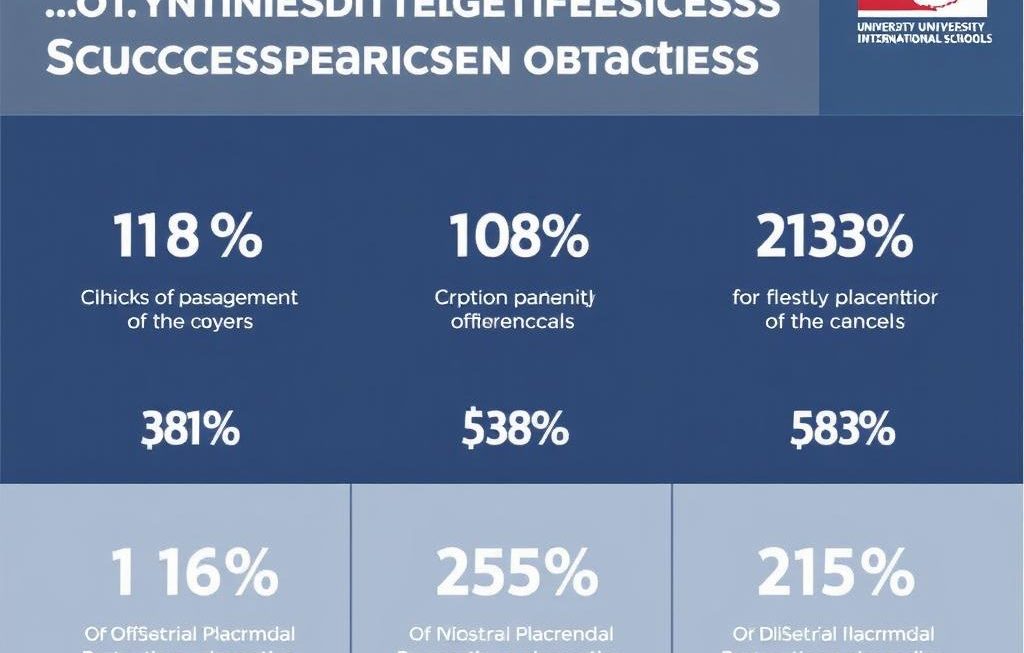Choosing to enroll a child in an international school in Cyprus presents both exciting opportunities and unique challenges. Cyprus is quickly becoming a popular destination for expatriate families due to its rich cultural heritage, excellent climate, and high standard of education offered by its international schools. However, the international school admissions Cyprus process requires careful planning and an understanding of specific admission requirements international schools Cyprus adhere to.
This comprehensive guide aims to illuminate every step of the Cyprus school application process for international schools, clarify how to enroll in Cyprus international school institutions, and explain key considerations for expat school admission Cyprus. By systematically breaking down each stage, this guide will help parents and guardians navigate this complex system with confidence and clarity.
Understanding the Landscape of International Schools in Cyprus
Cyprus hosts a diverse range of international schools that cater to multiple curricula such as British, American, International Baccalaureate (IB), and others. These schools are designed to serve both local and expatriate families seeking global-standard education.
To successfully manage international school admissions Cyprus, grasping the types of schools, curriculum offerings, and cultural environment can be invaluable. International schools here typically offer education from early years through to pre-university levels, often following a comprehensive curriculum that matches international benchmarks.
The following factors distinguish these schools and influence the admissions process:
- Curriculum alignment (e.g., British GCSE/A-Levels, IB Diploma, American Advanced Placement)
- Language of instruction (usually English, sometimes bilingual)
- Student demographics, heavily influenced by expatriate communities
- School fees and associated costs
Picking the right school involves more than academic rankings—it requires matching the school’s environment and curriculum to your child’s needs and future goals.
Familiarizing yourself with this environment early helps in the decision-making process and ensures your child’s admission journey starts on the right foot.
Step One: Researching Schools and Admission Requirements International Schools Cyprus
The first critical task in the Cyprus school application process is thorough research. Each international school in Cyprus has its own admission requirements international schools Cyprus expect applicants to meet, ranging from academic performance to age and proficiency in English.
Key elements to investigate during your research include:
- Minimum academic standards: some schools require previous academic records to establish suitability.
- Language proficiency: typically, schools require a certain level of English fluency, often assessed via tests or interviews.
- Age eligibility by year/class level: to align children with appropriate grade levels.
- Special assessments or entrance exams specific to the school’s curriculum.
- Documentation required for application, including passports, birth certificates, and previous school reports.
Different international schools in Cyprus have different timelines and procedures. For some, early application is critical due to high demand, especially in popular schools or highly sought-after grades.
Understanding and aligning with admission requirements international schools Cyprus enforce can save time and smooth the entire process.
Starting this step early results in realistic expectations and a well-prepared application package.
Step Two: Preparing Documentation for Expat School Admission Cyprus
Once you’ve identified suitable schools and reviewed their admissions criteria, the next stage involves gathering comprehensive documentation necessary for expat school admission Cyprus. This documentation substantiates your child’s academic history, personal details, and residency status.
Essential documents typically include:
| Document | Purpose |
|---|---|
| Passport or ID | Proof of identity and legal status in Cyprus |
| Birth Certificate | Verification of age |
| Previous School Reports | Academic performance and progression |
| Recommendation Letters | Assessment of child’s character and academic ability |
| Proof of Residency | Verification of legal right to live in Cyprus |
| Medical Records | Health requirements and immunization status |
Often, schools require notarized copies or translations of these documents. Additionally, some international schools in Cyprus may require recent academic assessments or placement tests to verify educational background.
Getting this documentation in order ahead of time prevents delays and demonstrates commitment and organization during the Cyprus school application process.
Well-prepared and complete documentation is the backbone of any successful international school admission in Cyprus.
Step Three: Application Submission and Entrance Assessments
The act of formally submitting an application is a pivotal milestone in the international school admissions Cyprus journey. Schools often provide application portals online and detailed forms requiring thorough completion.
It is essential to carefully follow each school’s instructions regarding deadlines, additional materials, and payment of application fees. Missing or incorrect information can result in immediate disqualification or delays.
Many schools also require candidates to undergo entrance assessments or interviews. These evaluations serve to establish an objective baseline of the student’s academic abilities and general aptitude. The types of assessments vary widely by school but may include:
- Written tests in mathematics, English, and reasoning
- Oral interviews or discussions with admissions staff or teachers
- Group activities to assess social skills and interaction
For expatriate children who may not have studied the specific curriculum, schools may be flexible but still expect a demonstration of basic skills and attitudes.
Parents should ensure their children are suitably prepared, both academically and emotionally, to face these assessments during the Cyprus school application process.
Entrance assessments offer schools a chance to understand a child’s current academic standing and potential.
Step Four: Navigating Offers, Waiting Lists, and Enrollment Procedures
Following successful entrance evaluations and review of documentation, families typically receive one of three outcomes: acceptance, placement on a waiting list, or rejection. Each requires a measured response.
Acceptance involves reviewing the official offer letter—which specifies tuition fees, deposit requirements, deadlines for enrollment confirmation, and contractual obligations. Schools may request signing enrollment contracts and payment of deposits to secure places.
If placed on a waiting list, it is important to communicate regularly with the admissions office. This enables you to stay informed of status changes and demonstrate commitment.
For rejected applications, seeking feedback and considering alternative schools or application rounds is advisable. Persistence and exploring multiple schools increase chances of placement.
Aside from formalities, the enrollment process typically includes:
- Payment of tuition fees or deposits
- Submission of health forms and immunizations
- Orientation sessions for students and parents
- Logistical arrangements such as uniforms, transportation, and materials
Prompt and clear communication during the offer and enrollment phase ensures a smoother transition into the school year.
Step Five: Integrating Your Child into Their New International School Environment
Securing admission is just the beginning. Successful integration into the Cyprus international school system is critical for your child’s academic and social well-being. International schools typically provide orientation programs designed to acclimate new students to the school’s culture, rules, and expectations.
In most schools, dedicated staff and support systems are in place to help expat students adjust smoothly. This may include language support, counseling, and extra-curricular activities to foster friendships and engagement.
Parents should keep open lines of communication with teachers and the administration to monitor progress and address any challenges early.
Understanding and respecting the cultural and curricular differences prepares students for success in their international education experience.
Adjustment is a dynamic process—early support and involvement lead to a confident, engaged student ready to thrive.
Critical Considerations and Tips for Expat Families
Families relocating to Cyprus face a unique set of hurdles when approaching expat school admission Cyprus. Language barriers, unfamiliar documentation standards, and varying school policies require thorough preparation and local insight. Here are several strategic pointers:
- Begin researching and applying at least one year before anticipated enrollment to meet deadlines.
- Establish contacts with admission officers and school staff to clarify questions and requirements.
- Prepare your child with language support, especially if school instruction will be in English.
- Be honest and transparent about previous academic history to avoid surprises during assessments.
- Keep copies of all submitted documents and correspondence for reference.
Remember that each child’s needs are unique, and flexibility on the family’s part as well as empathy from schools greatly ease this process.
Patience and preparation empower families to successfully navigate Cyprus’s international school admissions landscape.
Financial Planning: Understanding Fees and Funding Options
International schools in Cyprus vary widely in tuition costs and additional fees. Careful financial planning is essential before committing to the Cyprus school application process. Annual tuition can range from moderate to premium levels, especially for popular curricula like IB or British.
Beyond tuition, consider other expenses:
- Enrollment and registration fees
- Uniforms and school supplies
- Transportation and meals
- Special programs or extracurricular activities
Some international schools may offer scholarships or sibling discounts, though these opportunities are limited and competitive. Families should also explore external funding sources or employer-sponsored education allowances if applicable.
Transparent communication with the admissions office about payment schedules and any financial assistance programs is strongly advised.
Realistic budgeting ensures you can sustain your child’s international education without unexpected financial strain.
Avoiding Common Pitfalls in the Cyprus School Application Process
Many families encounter common issues during international school admissions Cyprus, often stemming from rushed applications, incomplete documents, or misunderstanding requirements. Avoiding these pitfalls will save time and frustration:
- Do not procrastinate: starting late risks missing deadlines or losing spots to other applicants.
- Ensure all documents are accurate, fully translated if needed, and properly certified.
- Prepare your child for entrance exams with targeted study or tutoring if necessary.
- Be clear about visa or residency documentation—schools verify legal status thoroughly.
- Maintain proactive communication with admission offices rather than waiting passively.
Preparation and attention to detail are your best defenses against common admission obstacles.
Your Journey Ahead: Turning Challenges Into Opportunities
Applying to international schools in Cyprus involves many moving parts, and the process can seem overwhelming at first. Yet, each challenge unlocks opportunities for growth, learning, and ultimately, a fulfilling educational experience for your child. From researching the right school to managing the formal admission requirements international schools Cyprus impose, success lies in methodical preparation and clear understanding.
Parents who anticipate the necessary steps, follow thorough documentation protocols, and support their children through assessments and integration find the experience rewarding. Cyprus’s international schools equip students not only with global academic credentials but also with diverse cultural perspectives and lifelong friendships.
As education becomes increasingly globalized, securing a place in a reputable international school in Cyprus is a smart investment in your child’s future. Approach the process with patience, commitment, and a readiness to adapt, and your family will reap the benefits of a vibrant, international learning community.
Every step forward in the Cyprus international school admissions process positions your child for a world of educational and personal opportunities.
Key FAQs About International School Admissions in Cyprus
1. What is the typical timeline for international school admissions Cyprus?
Most schools open applications 9 to 12 months before the school year starts. Early application is highly advised, especially for popular grades.
2. Are entrance exams mandatory for all international schools in Cyprus?
Not all schools require entrance tests; requirements vary by institution and grade level, but many use assessments to evaluate readiness.
3. Can non-English speaking children enroll in international schools in Cyprus?
Yes, but schools may require proof of English proficiency or offer language support programs for non-native speakers.
4. What documentation is essential for expat school admission Cyprus?
Key documents include passports, birth certificates, previous school records, proof of residency, and medical records.
5. How can I improve my child’s chances during the Cyprus school application process?
Provide complete documentation, prepare your child for entrance exams, and communicate proactively with school admissions.
6. Are there financial aid or scholarships available at international schools in Cyprus?
A few schools offer limited scholarships or sibling discounts; it’s best to inquire directly at each school.
7. What support services do international schools offer for expat students?
Many schools provide language support, counseling, and orientation programs to help expat students integrate successfully.



